EDITOR: Israel hits again, against its critics in Britain this time
No British senior politician will be allowed to get away with severe criticism of Israel for long. Baroness Jenny Tonge has been getting away with it for longer than most – the leader of the Liberal Democrats in the House of Lords, she has defended the Palestinians for many years, and is a principled and progressive politician even when her own party is being destroyed by Nick Clegg. On Tuesday this week I had the great honour of sharing a platform with her at the Queen Mary University Israeli Apartheid Week meeting, at which also spoke Dr. Azzam Tamimi. The three of us have spoken together before, and this was a very well conducted and lively meeting – with the usual idiotic questions from the Israeli press and the president of the Jewish Society, who claimed his family was ‘expelled’ from Iraq, a ‘fact’ both Dr. Tamimi and myself challenged. The report in Haaretz bears all the signs of an anti-Semitic attack, as did the questioning by the Haaretz corespondent, who should get the Hasbara prize of the year…
I was shocked to get up today to the news that Baroness Tonge was forced to resign the Liberal Democrat whip in the House of Lords by her great leader, Nick Clegg, because yesterday at another similar meeting, she ventured to say the obvious – that “Israel as we know it today” may not be there forever. Clegg has asked her to repent and apologise, but Jenny would of course not do this, and stayed true to her words! Hurrah for her, I say! Clegg is a disgrace to the long liberal tradition in Britain, a lacky of Cameron and a leading member of the most right-wing government in living memory in London. It is he who should be apologising for his collaboration with the enemies of the British working class.
Jenny will not stop supporting Palestine, and speaking the truth on Israel, I am sure. The more such events take place, the clearer is the pressure under which the Israeli narrative is under.
Baroness Tonge: The full statement: The Jewish Chronicle
February 29, 2012
“The comments I made have been taken completely out of context. They followed a very ill tempered meeting in which Zionist campaigners attempted continually to disrupt proceedings. They mouthed obscenities at the panelists, to the extent that University security attempted to remove them from the premises.
“The comments I made were in protest at the treatment of Palestinians in Gaza and the West Bank and the treatment of Israeli Arabs.
“I am disappointed the leadership of my party did not consult me before issuing a press release and seems always to abet the request of the pro-Israel lobby. Israel is acting against international law, the Geneva conventions, and Human Rights. They do this with impunity and if our political parties will not take action then individuals must.
“I have been asked to apologise but refuse to do so and resign the whip of my party.”
EDITOR: to listen to Baroness Tonge on the BBC this morning, use the link below:
Baroness Tonge defends Israel comments: BBC
Liberal Democrat peer Baroness Tonge has told the Today programme that Nick Clegg’s decision to withdraw the party whip after her comments on Israel was made “hastily and ill advisedly”.
Baroness Tonge provoked an outcry by saying that Israel “is not going to be there forever in its present form” at an event at Middlesex University and was told to apologise by the Lib Dem leader Nick Clegg.
But she told the Today programme’s John Humphrys that she had an “enormous amount of support” for her comments and that if Israel continues with its policies and loses more allies, it can not expect to survive.
But Conservative MP Robert Halfon maintained that the problem is that Baroness Tonge “represents an extreme anti-Israel view” in which she is attempting to “delegitimize” Israel.
He dismissed her comments as “conspiracy theories” and “disproportionate” given everything else that is happening in the Middle East.
Lady Tonge bites back after Nick Clegg disowns her over her Israel comments: Guardian
Liberal Democrat leader acted ‘hastily and ill-advisedly’ says peer punished for saying Israel ‘would not be there forever’
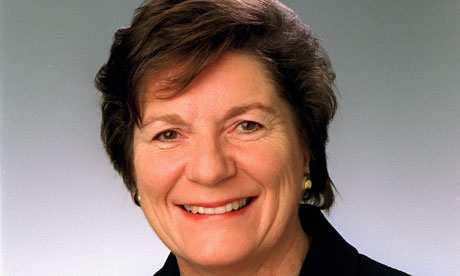
Liberal Democrat peer Lady Tonge has expressed disappointment that party leader Nick Clegg “very hastily and ill-advisedly” disowned her after she said Israel “would not be there forever”.
Tonge, a former Lib Dem MP, was forced to give up the party whip this week after the deputy prime minister told her to apologise or resign over her comments, made to students at Middlesex University. Tonge stood by her remarks.
Asked on BBC Radio 4’s Today programme if she thought Clegg’s ultimatum had been justified, Tonge said: “I think [he acted] very hastily and I think ill-advisedly. He’s going to have a lot of flak about it, I do know that.
“Of course, I always have an enormous amount of flak and I am quite used to that. But I have also had an enormous amount of support.”
Clegg acted after the Guido Fawkes website ran a video clip of Tonge at a Middlesex University meeting last week, where she said that Israel would not last forever in its present form.
“One day, the American people are going to say to the Israel lobby in the USA: enough is enough. Israel will lose support and then they will reap what they have sown,” she said.
Robert Halfon, the Conservative MP for Harlow, said Clegg was right to demand that Tonge apologise or leave the Lib Dem grouping in the Lords because her comments sought to “delegitimise Israel”.
He told Today: “The problem with Baroness Tonge is that she represents an extreme anti-Israel view.
“She attempts to delegitimise Israel, her criticism is disproportionate and it is also damaging not just to Israel but to her own credibility.
“I agree with free speech and she is welcome to go and say all these conspiracy theories on Speaker’s Corner in Hyde Park … but she represents the Liberal Democrats, and it was right for Nick Clegg to ask her to apologise because what she was saying was trying to delegitimise Israel.”
He added: “People like Baroness Tonge have these conspiracy theories but say very little about what goes on in Damascus, in Syria, every day. It is incredibly relevant because no one ever asks if Syria is going to exist or if Syria should not exist.
“But in the case of Baroness Tonge it is conspiracy theories and an attempt to delegitimise Israel.
“What I am trying to say is that the criticism of Israel – and it takes a lot to unite Ed Miliband, Nick Clegg and the foreign secretary – her criticism is far more disproportionate and takes little account of what is going on.”
Tonge said “facts on the ground” had inspired her comments.
“I base my comments on what is happening to Palestinians in those areas, let alone what is happening now in East Jerusalem.
“Everywhere you look and go, you see the brutalisation of Palestinians. That is not conspiracy, that is facts on the ground.”
She added: “You know, it has been said by many, many people, to say that if Israel continues with the policies it’s pursuing at the moment towards the Palestinians, let alone in the wider Middle East, if you combine that with the fact that Israel has lost its allies like Turkey and Egypt and is making enemies all over the Middle East, if you add to that the fact it just cannot carry on pursuing the policies, doing the things it’s doing, and expecting to survive.
“At the moment it survives because it has the backing of America but that may not go on forever. The American people may get fed up of backing this state that angers everyone and irritates everyone.”
Tonge was sacked as the Lib Dem children’s spokeswoman in the Commons in 2004 when she suggested she could consider becoming a suicide bomber.
Nick Clegg was too quick to disown me over Israel comments, says Baroness Tonge: Telegraph
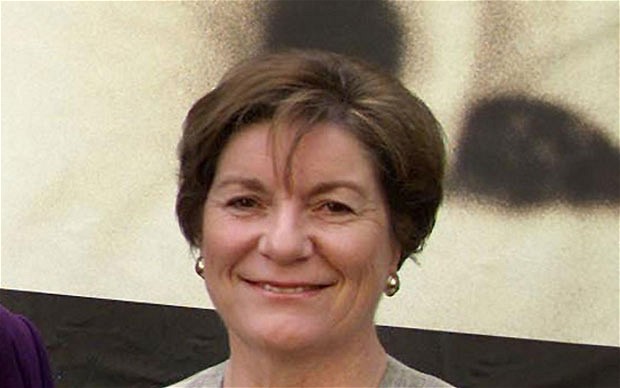 Baroness Tonge, a Liberal Democrat peer, has criticised Nick Clegg for his response after she said Israel “is not going to be there forever in its present form”.
Baroness Tonge, a Liberal Democrat peer, has criticised Nick Clegg for his response after she said Israel “is not going to be there forever in its present form”.
By Donna Bowater3:46PM GMT 02 Mar 2012
Mr Clegg asked Lady Tonge to apologise and withdraw her comments earlier this week but the peer refused and has now withdrawn the party whip.
During a talk at Middlesex University, she claimed Israel would “reap what it has sown” if the United States decided to withdraw its support, telling students the country “would not be there forever”.
Asked if Mr Clegg was too quick to disown her on BBC Radio 4’s Today programme, she replied: “I think very hastily and I think ill-advisedly.
“He’s going to have a lot of flak about it, I do know that.
“Of course, I always have an enormous amount of flak and I am quite used to that. But I have also had an enormous amount of support.”
Lady Tonge refused to back down over the comments and stood by them on the programme.
“I based my comments on what is happening in Palestine,” she said.
Conservative MP Robert Halfon was also on the programme and said Mr Clegg was right to call for an apology.
“I agree with free speech and she is very welcome to say all these conspiracy theories at Speakers’ Corner at Hyde Park,” he said.
“It was right for Nick Clegg to ask her to apologise because what she was saying was trying to delegitimise Israel.”
Lib Dem Baroness Tonge quits over Israel remarks: BBC
Lib Dem health spokeswoman sacked
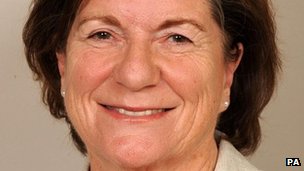
A Lib Dem peer has resigned from the parliamentary party after saying Israel “is not going to be there forever”.
Baroness Tonge also told a university audience that the country would “reap what it’s sown” in the Middle East – drawing criticism from party leader Nick Clegg and Labour’s Ed Miliband.
She later resigned from the Lib Dem whip, saying the remarks had been taken “out of context”.
A party spokesmen said her words had been “extremely ill-advised”.
It is not the first time Baroness Tonge has had a run-in with the Lib Dem leadership.
She was sacked as a health spokeswoman in 2010 after she claimed Israeli troops sent to Haiti after the earthquake there were trafficking organs.
And, in 2004, when as Jenny Tonge she was still an MP, then Lib Dem leader Charles Kennedy asked her to resign as children’s spokeswoman after she said she “might just consider becoming” a suicide bomber if she was a Palestinian.
‘Proud record’
Her resignation from the party follows a speech at an event held at Middlesex University, in which she said: “One day, the United States of America will get sick of giving £70bn a year to Israel to support what I call America’s aircraft carrier in the Middle East – that is Israel.
I have been asked to apologise but refuse to do so and resign the whip of my party”
Baroness Tonge
“One day, the American people are going to say to the Israel lobby in the USA: enough is enough.
“It will not go on for ever. Israel will lose support and then they will reap what they have sown.”
Labour leader Ed Miliband condemned the remarks, writing on Twitter: “No place in politics for those who question existence of the state of Israel.”
Mr Clegg said: “These remarks were wrong and offensive and do not reflect the values of the Liberal Democrats.
“I asked Baroness Tonge to withdraw her remarks and apologise for the offence she has caused. She has refused to do so and will now be leaving the party.
“The Liberal Democrats have a proud record of campaigning for the rights of Palestinians, and that will continue.
“But we are crystal clear in our support for a two-state solution.”
‘Mouthed obscenities’
Afterwards Baroness Tonge said: “The comments I made have been taken completely out of context. They followed a very ill-tempered meeting in which Zionist campaigners attempted continually to disrupt proceedings.
“They mouthed obscenities at the panellists, to the extent that university security attempted to remove them from the premises.
“The comments I made were in protest at the treatment of Palestinians in Gaza and the West Bank and the treatment of Israeli Arabs.”
She added: “I am disappointed the leadership of my party did not consult me before issuing a press release and seems always to abet the request of the pro-Israel lobby.
“Israel is acting against international law, the Geneva Conventions, and human rights. They do this with impunity and if our political parties will not take action then individuals must.
“I have been asked to apologise but refuse to do so and resign the whip of my party.”
The Liberal Democrat Friends of Palestine group offered Baroness Tonge its “full support”.
It said: “The condemnation was made before the leadership had heard her side of the story or even spoken to her. That action in itself worries us. She is entitled to an apology.”
This morning Jenny Tonge was interviewed by John Humphries and included Robert Halfon MP, Political Director, of Conservative Friends of Israel
( He is MP for Harlow)
Link to Today Programme listen again http://www.bbc.co.uk/iplayer/console/b01cks47
She speaks at about 32 minutes into the clip.
The interview was broadcast at 7.30pm
Move programme time marker – Pink Line and adjust time to 1.30
Interview lasts 10 minutes
Express your support to John Humphries who kept the interview in order today@bbc.co.uk
Beware Any Questions is broadcast this evening at 8pm (From Beccles Suffolk)
In case any question relates to Jenny Tonge it will provide an opportunity to respond on Any Answers on Saturday
Tel: 03700 100 444
Email: any.answers@bbc.co.uk
Baroness Tonge stands on the right side of Justice
Baroness Jenny Tonge has served the Liberal Democrats as MP from 1997 -2005. She was recently pressured to leave the Lib Dem Party by leader Nick Clegg after overwhelming criticism by her fellow peers and Zionist supporters for her courageous statement on Israel’s lobby in America. Speaking at a lecture at Middlesex University last week she was quoted,
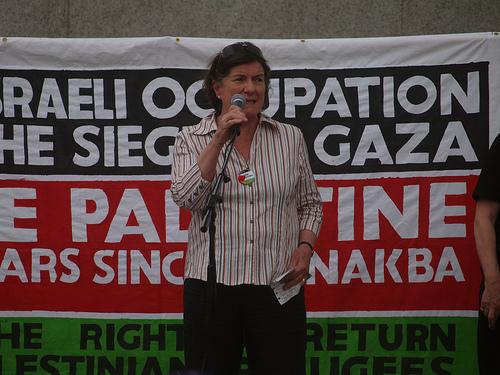
“Israel is not going to be there forever in its present form. One day, the United States of America will get sick of giving £70bn a year to Israel to support what I call America’s aircraft carrier in the Middle East – that is Israel. One day, the American people are going to say to the Israel lobby in the USA: enough is enough. Israel will lose support and then they will reap what they have sown.”
Baroness Tonge’s statement which has sparked controversy amongst politicians is merely a fair observation of Israel’s on-going policy of settlement expansion and territorial acquisition, ethnic cleansing of the indigenous Palestinian population, Judaisation of East Jerusalem and settlement buildings in the West Bank as integral territories of a future Palestinian state. Palestinians have suffered grave injustices under Israel’s systematic apartheid policies and occupation for over six decades. Palestinians are expected to live under harsh conditions in war-torn societies, under siege in Gaza, restriction on movement through checkpoints and road-blocks, abuse and torture in Israeli prison cells, daily curfews and raids and countless abuses of human rights. Israel has violated international law and regulations and denied Palestinians the right to live a peaceful and dignified life. This cannot continue. Israel must be exposed and held accountable for its war crimes and illegal measures against the Palestinian population.
Baroness Tonge has stood on the right side of justice and is paying the price for exposing the true face of Israel.
Ambassador Hassassian
5 Galena Road
Hammersmith
www.palestinianmissionuk.com <http://www.palestinianmissionuk.com>
Controversial Palestinian academic hails ‘martyrdom’ U.K. event: Haaretz
Azzam Tamimi, who sparked outrage when he said in 2004 that sacrificing oneself was a ‘noble cause,’ says at Queen Mary’s session: If you’re not prepared to die for your country then you are not a patriot.
By Daniella Peled
British-Palestinian activist Azzam Tamimi reiterated his strong connections to Hamas and his willingness to become a “martyr” at a student event on Tuesday night, which drew controversy due to his advertised appearance.
Tamimi, an academic who lives in London, sparked outrage when he said during a BBC interview in 2004 that sacrificing oneself was a “noble cause,” adding that it was “the straight way to pleasing my God and I would do it if I had the opportunity.”
Student groups and Jewish activists had raised concerns over his appearance at the event One State or Two State Solution, hosted by Queen Mary’s University’s Palestine Solidarity Society.
In response to a question from Haaretz over the opposition to his attendance, he insisted that the reason for the uproar was n attempt to silence his legitimate political views.
“I’d be a martyr for my country, of course,” he said. “If you’re not prepared to die for your country then you are not a patriot.”
Regarding his connections to Hamas, which is banned in the EU over its status as a terror organization, he said: “I have a great honor to be close to Hamas,” adding that it was only unfortunate that he himself did not have a leadership role within the group.
Having described Hamas chief Khaled Meshal as a close childhood friend, and saying that “all the leaders of Hamas are my friends,” Tamimi added: “I am not ashamed of my association with Hamas. Hamas, in my view, is the true representative of the Palestinian people.”
His words were met with a round of applause from the audience of around 30 people.
Earlier, a pro-Israel blogger, Richard Millett, was denied entry to the event, at which U.K. politician Jenny Tonge and academic Haim Bresheeth also spoke. An event organizer said that Millett was well-known as a disruptive influence.
The group Student Rights had previously expressed concerns over the make-up of the panel.
“It is bad enough that Tamimi, a supporter of an anti-Semitic terrorist group like Hamas, should be invited onto a campus to speak, as he was at Loughborough University last November,” the group said in a statement on its website.
“However, what is worse is that not only will there be no balance to his hate filled views, but that the panel he will speak alongside have all declared outspoken opposition to Israel in the past,” it added.
Baroness Tonge, Lib Dem Peer, Criticised For Saying ‘Israel Will Not Last Forever’ (VIDEO): Huffington Post
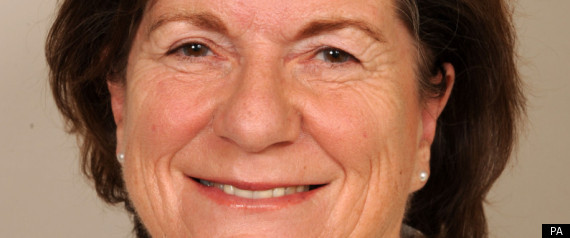 A Liberal Democrat peer who once said she would consider becoming a suicide bomber if she were Palestinian has been criticised for saying Israel would not “last forever”.
A Liberal Democrat peer who once said she would consider becoming a suicide bomber if she were Palestinian has been criticised for saying Israel would not “last forever”.
Speaking at an event at Middlesex University last Thursday, Baroness Tonge said Israel would one day lose the support of the United States and would then “reap what they have sown”.
“Beware Israel,” she said. “Israel is not going to be there forever in its present performance. One day the United States of America will get sick of giving £70 billion a year to Israel.”
The Lib Dem peer said she thought of Israel as “America’s aircraft carrier in the Middle East” but that one day people in the United States would say “enough is enough”.
“It will not go on forever, it will not go on forever and Israel will lose its support, then they will reap what they have sown,” she added.
In a statement given to the Guido Fawkes website, which first reported the remarks, the Liberal Democrats said Baroness Tonge did “not speak for the party on Israel/Palestine”.
“Her presence and comments at this event were extremely ill-advised and ill judged. The tone of the debate at this event was wholly unacceptable and adds nothing to the peace process. The Liberal Democrats are wholehearted supporters of a peaceful two-state solution to the Israel/Palestine issue,” the statement added.
In 2010 Baroness Tonge was sacked by Nick Clegg as a health spokesperson for the party after she called for an inquiry into allegations Israeli troops were involved in organ trafficking in Haiti. Clegg said her comments were “wrong, distasteful and provocative”.
And she was sacked from the Lib Dem front bench in 2004 after she said she “might just consider” becoming a suicide bomber if she were Palestinian.
Ed Miliband said the Lib Dem leader should condemn the remarks as there was “no place in politics for those who question the existence of the state of Israel”.
No place in politics for those who question existence of the state of Israel. Nick Clegg must condemn Jenny Tonge’s remark & demand apology
February 29, 2012 3:48 pm via web Reply Retweet Favorite
Labour MP Ian Austin told The Guardian that Nick Clegg should make the peer withdraw her comments.
“There is a cross-party consensus that a two-state solution is the only way to bring peace to the Middle East. At the very least, Nick Clegg must make Baroness Tonge withdraw these remarks,” he said.
And Baroness Tonge was dismissed as an “irrelevant, siren and marginal voice” by the Liberal Democrat Friends of Israel group.
Israeli envoy to the UK responds to Tonge’s outburst: JewishChronicle
The Israeli ambassador to Britain has described Jenny Tonge’s attack on Israel as “shocking”.
The former peer and longtime Israel critic resigned from the Liberal Democrats on Wednesday after refusing to apologise for stating that Israel would “not last forever”.
Daniel Taub, the British-born Israeli envoy, commented on the matter at the Community Security Trust annual dinner later that evening.
Mr Taub said: “I’m sure I speak for everyone here when I tell Baroness Tonge we have no intention of going anywhere.”
George Osborne, the chancellor and guest of honour at the dinner, added: “I’ve got a message for Jenny Tonge. The State of Israel is going to be around a lot longer than you are.”
Condemn Treatment of Baroness Jenny Tonge by Clegg: FOA
Thursday, 1st March, 2012
Baroness Jenny Tonge was given an ultimatum by Lib Dem Party leader Nick Clegg when she made a fair and accurate statement about the state of Israel – ‘retract the statement or leave the party’
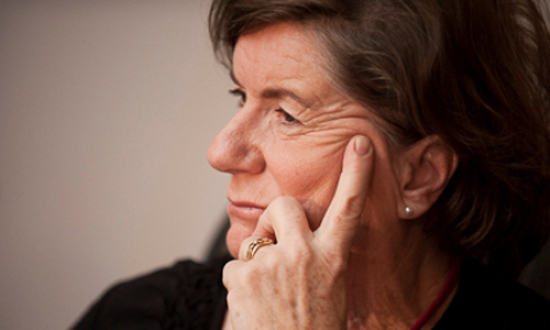
Baroness Tonge, a long time champion of the Palestinian struggle for freedom chose to leave the party rather than be forced to toe the party line where Israel is concerned.
The exact statement she made at Middlesex University last week was:
“Israel is not going to be there forever in its present form. One day, the United States of America will get sick of giving £70bn a year to Israel to support what I call America’s aircraft carrier in the Middle East – that is Israel. One day, the American people are going to say to the Israel lobby in the USA: enough is enough. Israel will lose support and then they will reap what they have sown.”
Ismail Patel, Chair of Friends of Al-Aqsa stated: “There was nothing in her statement which was unfair or inappropriate. The fact is that Israel in its present form is a racist state which has been occupying Palestinian land for over 44 years. This cannot and will not last forever. Millions of people around the world who form the ‘Free Palestine’ solidarity movement will work hard to ensure that Israel ends its occupation and that Arab Israeli’s are given equal rights within Israel. These aims merely represent international legal standards.”
Party leader Nick Clegg’s ultimatum was unnecessary and reflects the unacceptable sway the pro-Israel lobby appears to have on the party’s policies towards Israel.
ACTION ALERT
1. Write to Nick Clegg condemning his ultimatum to Jenny Tonge.
Email: leader@libdems.org.uk
2. Write to Baroness Jenny Tonge expressing support for her brave stand and continued solidarity with the Palestinian people.
Email: tongej@parliament.uk

LADY TONGE : UNE VRAIE “DAME”: Europalestine
vendredi 2 mars 2012
La Baronne Tonge, qui siège à la Chambre des Lords en Grande-Bretagne, a refusé de s’excuser et a préféré quitter le poste de chef du groupe parlementaire du parti “Libéral Démocrate” qui lui demandait de revenir sur la phrase qu’elle avait prononcé : “Israël ne pourra exister indéfiniment sous sa forme actuelle”.

Bien entendu, le lobby israélien est tout de suite monté au créneau, tronquant la phrase prononcée pour la présenter comme une menace.
Eternel chantage à l’antisémitisme
Mais Lady Tonge a envoyé promener Nick Clegg, dirigeant de son parti quand ce dernier a exigé d’elle qu’elle s’excuse. Elle au contraire redit qu’elle “protestait contre le traitement infligé aux Palestiniens à Gaza et en Cisjordanie, de même que celui subi par les Arabes israéliens”.
Lors d’un meeting à l’université du Middlesex la semaine dernière, elle a déclaré très précisément : “Israël ne restera pas indéfiniment dans sa forme actuelle. un jour, les Etats-Unis en auront marre de verser 70 milliards de livres sterling par an à Israël pour soutenir un porte-avions américain au Moyen-orient, c’est à dire Israël. Un jour, le peuple américain dira au lobby israélien aux USA : trop, c’est trop.”
Ajoutant “Israël perdra son soutien et récoltera ce qu’ils ont semé”.
La Baronne Tonge a précisé que ces commentaires étaient en outre prononcés dans un contexte où un groupe de sionistes avait éructé des obscénités pendant toute la réunion à l’égard des intervenants jusqu’au moment où les vigiles avaient dû les faire sortir de la salle.
Elle a exprimé sa ’déception de voir la direction de son parti céder en permanence aux pressions du lobby israélien, en dépit du fait qu’Israël viole le droit international, les Conventions de Genève et les droits de l’homme.’ Et a estimé que “tant que les politiques se conduiront de la sorte, c’est aux citoyens qu’il reviendra de mener ce combat.”
Si vous souhaitez remercier Lady Tonge, vous pouvez lui envoyer un mail à : tongej@parliament.uk
CAPJPO-EuroPalestine
















